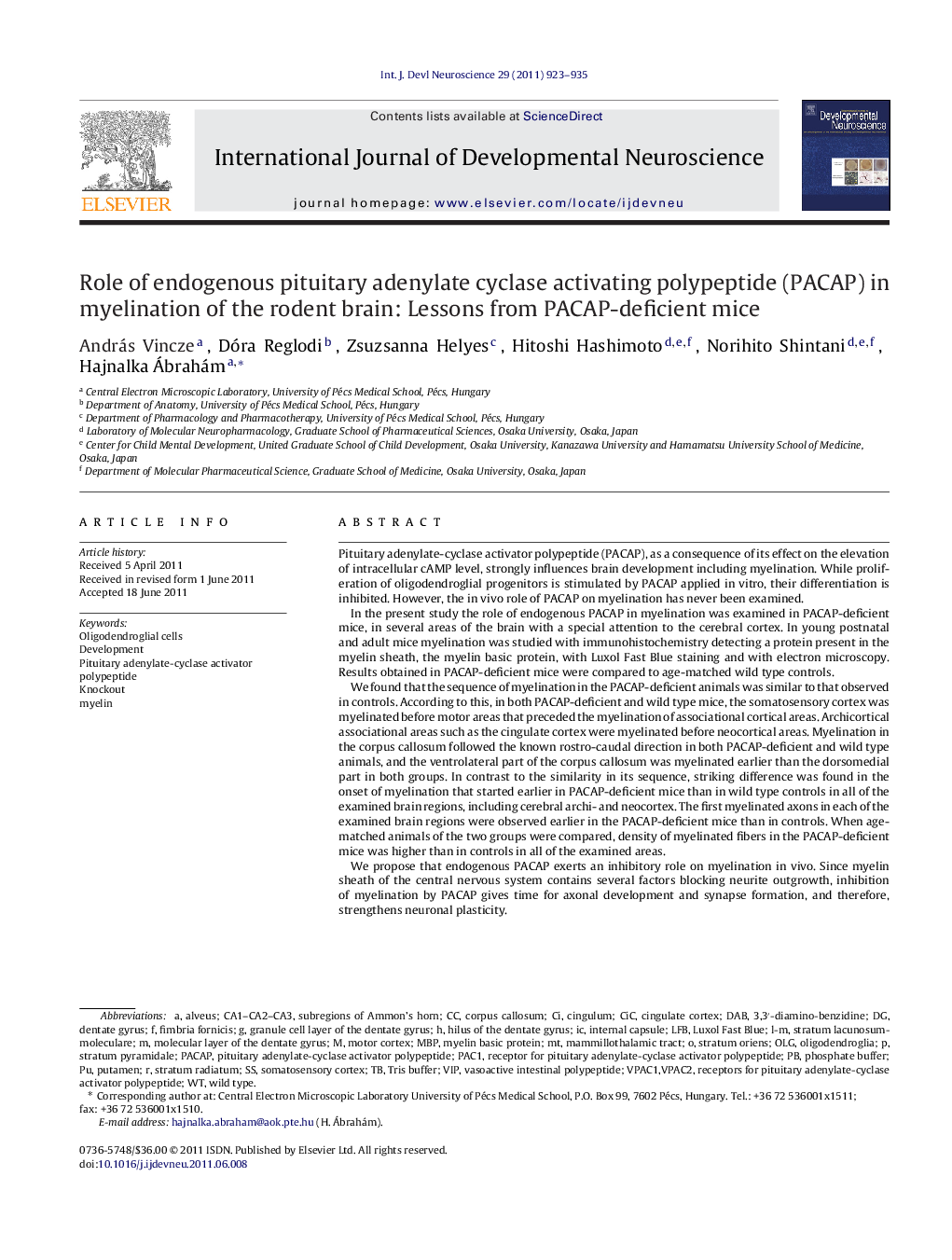| Article ID | Journal | Published Year | Pages | File Type |
|---|---|---|---|---|
| 2786327 | International Journal of Developmental Neuroscience | 2011 | 13 Pages |
Pituitary adenylate-cyclase activator polypeptide (PACAP), as a consequence of its effect on the elevation of intracellular cAMP level, strongly influences brain development including myelination. While proliferation of oligodendroglial progenitors is stimulated by PACAP applied in vitro, their differentiation is inhibited. However, the in vivo role of PACAP on myelination has never been examined.In the present study the role of endogenous PACAP in myelination was examined in PACAP-deficient mice, in several areas of the brain with a special attention to the cerebral cortex. In young postnatal and adult mice myelination was studied with immunohistochemistry detecting a protein present in the myelin sheath, the myelin basic protein, with Luxol Fast Blue staining and with electron microscopy. Results obtained in PACAP-deficient mice were compared to age-matched wild type controls.We found that the sequence of myelination in the PACAP-deficient animals was similar to that observed in controls. According to this, in both PACAP-deficient and wild type mice, the somatosensory cortex was myelinated before motor areas that preceded the myelination of associational cortical areas. Archicortical associational areas such as the cingulate cortex were myelinated before neocortical areas. Myelination in the corpus callosum followed the known rostro-caudal direction in both PACAP-deficient and wild type animals, and the ventrolateral part of the corpus callosum was myelinated earlier than the dorsomedial part in both groups. In contrast to the similarity in its sequence, striking difference was found in the onset of myelination that started earlier in PACAP-deficient mice than in wild type controls in all of the examined brain regions, including cerebral archi- and neocortex. The first myelinated axons in each of the examined brain regions were observed earlier in the PACAP-deficient mice than in controls. When age-matched animals of the two groups were compared, density of myelinated fibers in the PACAP-deficient mice was higher than in controls in all of the examined areas.We propose that endogenous PACAP exerts an inhibitory role on myelination in vivo. Since myelin sheath of the central nervous system contains several factors blocking neurite outgrowth, inhibition of myelination by PACAP gives time for axonal development and synapse formation, and therefore, strengthens neuronal plasticity.
• We studied the role of endogenous PACAP in myelination using PACAP-deficient mice. • Myelination was studied with immunohistochemistry detecting myelin basic protein. • Myelination in the brain starts earlier in PACAP-deficient mice than in controls. • Myelination is stronger in PACAP-deficient mice compared to age-matched controls. • Results indicate that endogenous PACAP inhibits myelination in the brain.
